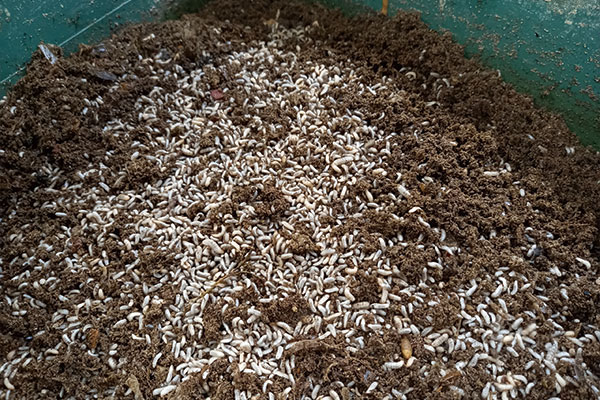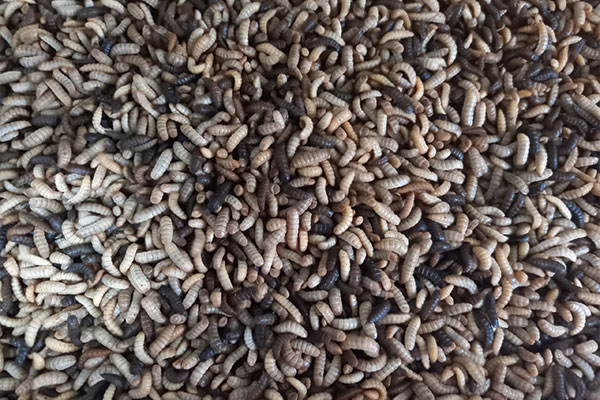We will lead the eco-friendly insect industry at BCM-Park.
Adults: With their mouthparts degenerated, they do not cause harm to humans
Larvae: They eat food waste, carcasses, and other organic matter, contributing to environmental cleansing.
They are more cost-effective in production compared to other insect larvae.
High nutritional content and abundant immune substances.
Food waste management
Minimizing greenhouse gas emissions.
The ecological characteristics of Stratiomyidae.
ㆍAdults do not harm humans, unlike common flies, and their unique mouthparts prevent regurgitation after feeding, eliminating disease transmission.
ㆍThey are not considered as pests worldwide and rarely invade human residences.
ㆍLarvae consume dung, manure, and organic waste, contributing to waste management.
ㆍThey have a high protein content and contain adequate amino acids and fatty acids.
The importance of using Stratiomyidae feed
ㆍOutbreaks of infectious diseases in livestock and aquaculture can result in significant economic losses.
ㆍDung beetle extract shows a high potential for enhancing the immunity of livestock.
ㆍGrowing interest in novel immune-enhancing feed additives, not only for antiviral effects but also for their antimicrobial properties.
ㆍIt provides a stable and sustainable alternative protein source for feed production.
Stratiomyidae breed



